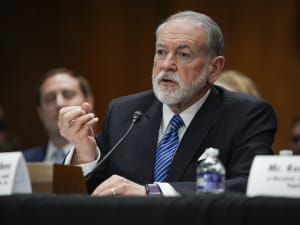Ceasefire in Lebanon close? Amid reports of progress, outstanding issues remain
Lebanese political analyst casts doubt on ceasefire agreement, says ‘all this optimism is artificial’

Reports in several news sites on Sunday evening claimed that a ceasefire agreement for Lebanon is close, with only a few details to be worked out between the sides.
Following a stormy day, in which at least 250 Hezbollah rockets rained down on Israel, Kan public broadcaster reported that the basic ceasefire agreement had already been reached with Prime Minister Benjamin Netanyahu. He was reportedly meeting with several ministers on Sunday evening to explore strategies to present the deal to the Israeli public.
A report on Channel 14 News claimed that the prime minister was considering accepting the U.S. ceasefire proposal over concerns that the Biden administration could “take unilateral American steps similar to [those at] the end of the Obama era,” which would be detrimental to Israel.
Reports indicate that one of the remaining issues to be resolved is the extent of the IDF's freedom to operate in Lebanon in response to ceasefire violations.
Another issue, which arose only after the International Criminal Court's (ICC) decision to issue arrest warrants for Netanyahu and former Defense Minister Yoav Gallant, is the role of France in overseeing and enforcing the ceasefire agreement.
After France announced it would implement the arrest warrants, Netanyahu reportedly told U.S. special envoy Amos Hochstein that he would not accept the French government having a role in the enforcement mechanism. Lebanon has requested a French role in the implementation of the ceasefire agreement due to the history between the two nations.
According to an Axios report, the ceasefire agreement under discussion would see Hezbollah withdraw north of the Litani River, while the Lebanese Armed Forces (LAF) would deploy in southern Lebanon, and the IDF would withdraw. These actions would take place over a 60-day period.
The U.S. would lead an oversight committee to address violations of the ceasefire, which is said to include freedom of military operation for Israel to act against imminent threats from Lebanon, any attempts to rearm Hezbollah or the terror group's efforts to re-establish itself south of the Litani River.
However, the IDF’s freedom of operation would depend on the failure of the LAF to deal with the threat and would require agreement between the United States and Israel. It is unclear if Netanyahu’s cabinet will agree to such conditions.
Israel’s Channel 13 News reported that Hochstein gave both the Lebanese and Israeli sides an ultimatum, stating that if the two did not commit to reaching an agreement within days, he would withdraw from the talks.
The report claims that Hochstein conveyed the message to Netanyahu through Israeli Ambassador to the U.S. Michael Herzog.
Following the discussions between Netanyahu and several ministers on Sunday evening, an Israeli official told Channel 13, “The direction is positive from our point of view, but there are significant issues that have not yet been resolved.”
At the same time, the Saudi news channel al-Arabiya reported that Israel had not given the green light for the U.S. to move forward in the negotiations. The channel cited “senior officials” who said there had been progress in the talks, but the agreement was “not there yet.”
In an interview with Saudi al-Hadath TV, Lebanese author and political researcher Bechara Khairallah, said the optimism surrounding a ceasefire deal is artificial.
“All this optimism is artificial. It’s an attempt to create a sense of optimism and make people believe that an agreement is close, particularly before the inauguration of President-elect Donald Trump,” Khairallah told al-Hadath.
He said that several conditions by both sides were unattainable due to intransigence by the other side.
Israel is demanding the disarmament of Hezbollah, in accordance with UN Security Council Resolution 1701, which Khairallah said neither Hezbollah nor Iran would agree to.
Khairallah also said Iran is concerned about a ceasefire in Lebanon because it would permit Israel to focus on Iran itself.
“The Iranians don’t want to see a ceasefire that ends the war because they know it will pave the way for Israeli progress toward those strategic objectives. I am certain that the Iranians are fearful of a ceasefire in Lebanon today.”

The All Israel News Staff is a team of journalists in Israel.













